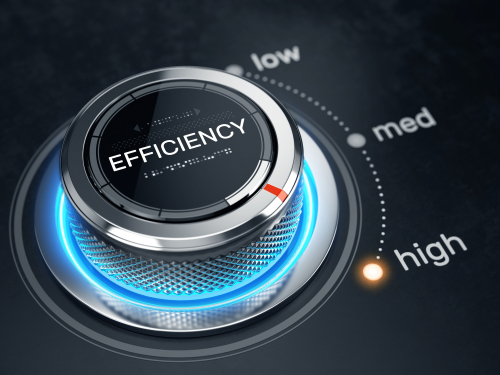In the inbound call center business, efficiency is the name of the game. It’s where speed meets effectiveness, where all customers’ calls are being answered in a timely manner and all their problems are being solved in a satisfactory way. While the skill of your agents plays a big role in how efficiently they are able to work, there are steps you can take to support their ability to work efficiently. Here are four such steps.
- Streamline Call Routing
Customers hate waiting on the phone for their call to be answered. But the only thing they hate even more is when they finally reach an agent on the other line only to be transferred to a different department. To avoid this situation, call routing can be streamlined and optimized to ensure that every caller is reaching the correct agent. The easiest way to do this is to build out your IVR to learn more about each customer’s inquiry and direct them to the correct department before they even speak to an agent.
- Let Callers Self-Report Information
At the same time as you are using the IVR to make sure that customers reach the correct agent on their first try, you can also use this time while they are in the queue to collect information that will streamline their call once they do reach an agent. Through your automated system, you can have customers input their phone number, address, account number, or other identifying information so that when they start their conversation with an agent, that person already has their account pulled up. This can eliminate the need to relay this identifying information to the agent and allow them to jump right into the reason for the customer’s call. Plus, in the process of reporting this information, the system and/or the customer may discover another way to resolve their issue that doesn’t require speaking with an agent at all.
- Flesh Out Call Scripts
Callers expect agents to be experts; they don’t want to sit on hold while the agent looks something up or consults with a colleague before they can proceed with the call. Training plays a big part in this preparedness, but so does the call script. Call scripts can provide agents with a roadmap for how to handle a variety of inquiries, and the more routes the script takes the better. Constantly evaluating the effectiveness of the script and the suggestions within and adding new scripts and offshoots that will be valuable for agents will help them move through calls more quickly and efficiently.
- Rely on Data
You can never have too much data on what’s going on in your call center. Data is the key to identifying bottlenecks, blind spots, and areas of improvement within your operation that need to be fixed or changed in order to optimize efficiency. Likewise, data can also reveal what you are doing well and what is working, giving you a template you can replicate in other areas to extend that success throughout all facets of your call center.
One additional factor that will help make your call center more efficient is to use a call center platform that supports your agents, like CallShaper. To learn more, contact us today


Leave A Comment